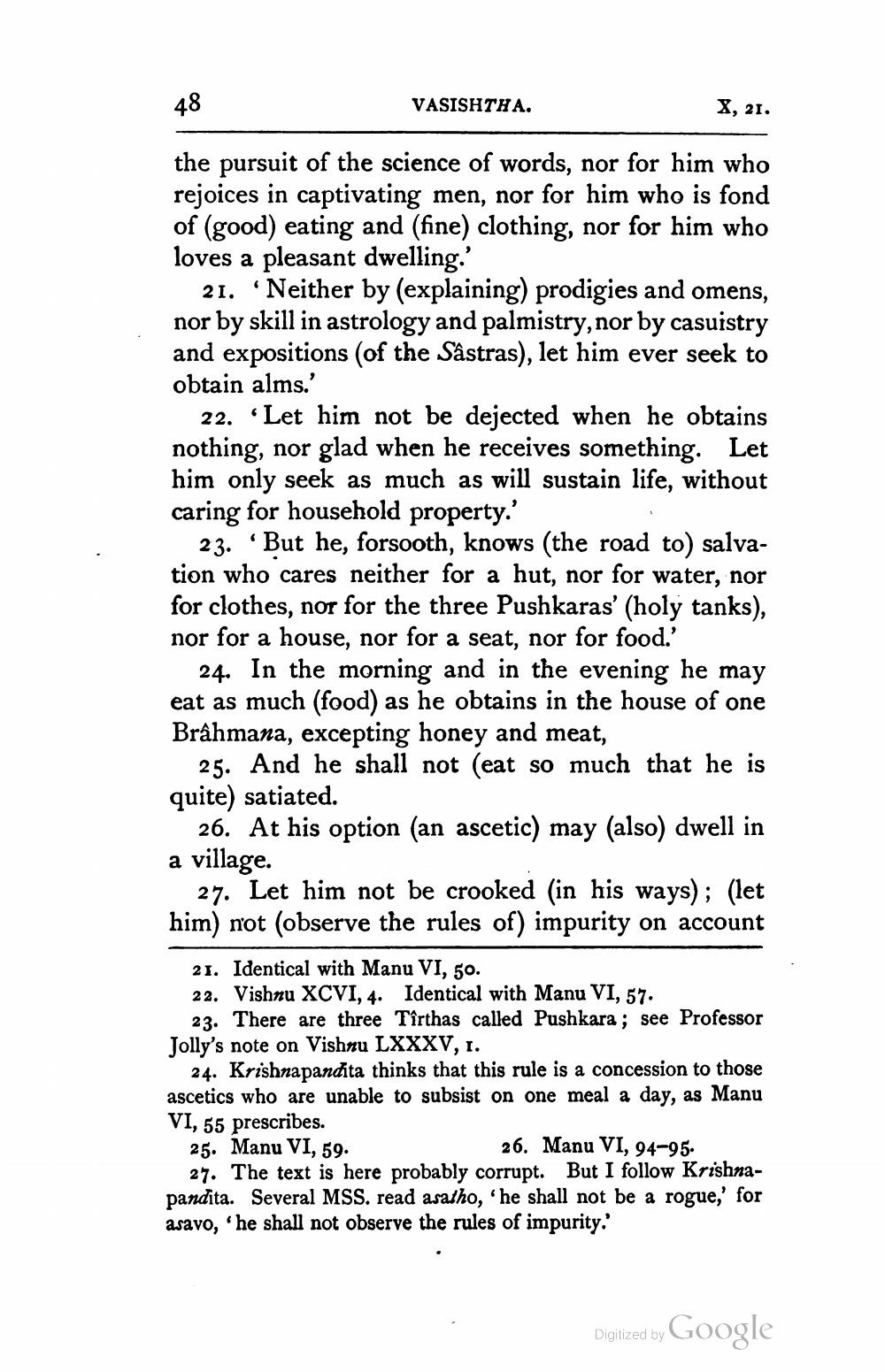________________
48
VASISHTHA.
X, 21.
the pursuit of the science of words, nor for him who rejoices in captivating men, nor for him who is fond of (good) eating and (fine) clothing, nor for him who loves a pleasant dwelling.'
21. `Neither by (explaining) prodigies and omens, nor by skill in astrology and palmistry, nor by casuistry and expositions (of the Sâstras), let him ever seek to obtain alms.'
22. Let him not be dejected when he obtains nothing, nor glad when he receives something. Let him only seek as much as will sustain life, without caring for household property.'
23. But he, forsooth, knows (the road to) salvation who cares neither for a hut, nor for water, nor for clothes, nor for the three Pushkaras' (holy tanks), nor for a house, nor for a seat, nor for food.
24. In the morning and in the evening he may eat as much (food) as he obtains in the house of one Brâhmana, excepting honey and meat,
25. And he shall not (eat so much that he is quite) satiated.
26. At his option (an ascetic) may (also) dwell in a village.
27. Let him not be crooked (in his ways); (let him) not (observe the rules of) impurity on account
21. Identical with Manu VI, 50. 22. Vishnu XCVI, 4. Identical with Manu VI, 57.
23. There are three Tîrthas called Pushkara; see Professor Jolly's note on Vishnu LXXXV, 1.
24. Krishnapandita thinks that this rule is a concession to those ascetics who are unable to subsist on one meal a day, as Manu VI, 55 prescribes. 25. Manu VI, 59.
26. Manu VI, 94-95. 27. The text is here probably corrupt. But I follow Krishnapandita. Several MSS. read asalho, 'he shall not be a rogue,' for asavo, he shall not observe the rules of impurity.'
Digitized by Google




